Loyola Marymount University Students Localize the Ignatian Family Teach-In for Justice
BY RACHEL HAIK | October 31, 2019
When I moved out to Los Angeles for college at Loyola Marymount University (LMU), the last thing I expected was for my faith to grow and be formed by the Jesuits. I grew up attending a Catholic church in Southern Missouri—the Bible Belt, Tornado Alley, the Ozarks, the birthplace of Bass Pro Shops—you get the picture. My church was traditionally Catholic, which, to me, always felt limited, outdated and, unfortunately, not always accepting of all people. Moving to Los Angeles changed my perspective in many ways due to a new exposure to social issues I didn’t know existed while living in my Midwestern bubble. I might have stayed a “Christmas and Easter Catholic” (which is completely fine, by the way) had I not attended a Jesuit university whose values are woven throughout the curriculum and day-to-day life.
My faith journey is by no means perfect and is always a work in progress. Kairos retreats, spiritual direction, being a sacristan for daily mass, an interfaith trip to Israel, and the Ignatian Solidarity Network’s annual Ignatian Family Teach-In for Justice were among the most formative faith experiences I had while attending LMU.
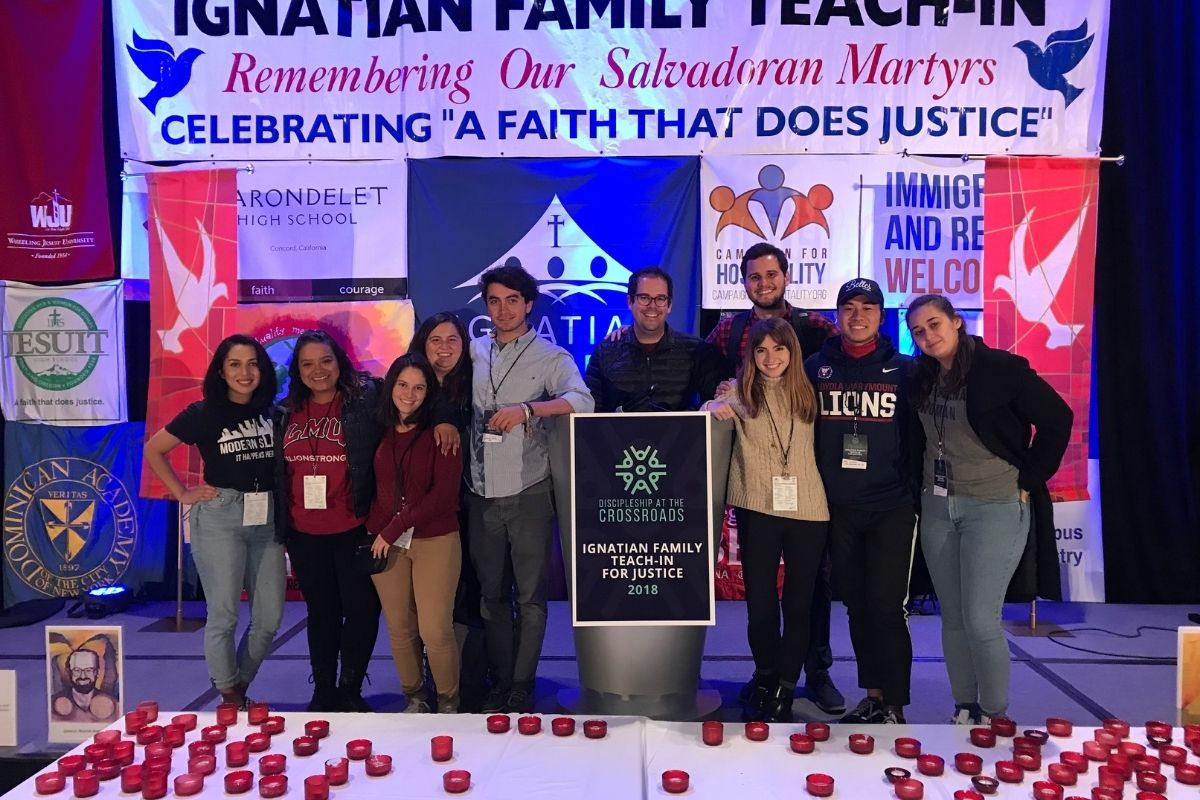
The Loyola Marymount University delegation at the 2018 Ignatian Family Teach-In for Justice, including the author (front, third from right). [Image via Loyola Marymount University]
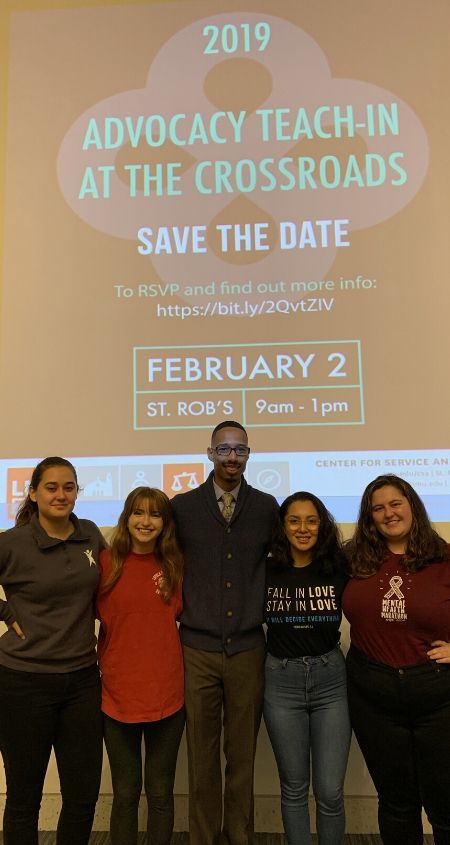
Loyola Marymount University local Advocacy Teach-in organizers with a keynote presenter. The author is pictured second from left.
Throughout the weekend, I sat in workshops listening to a myriad of voices speak to issues like prison reform and immigration. I studied journalism, film and communication studies while attending LMU, and those two issues became the forefront of my journalistic endeavors while covering local stories. At the Teach-In, I listened to a man be vulnerable about his experiences in prison to a whole room of people. I saw people who had never heard anything like this open their hearts to his story. My previous volunteer and journalistic experiences led me to people just like the man that spoke that day, and it felt simultaneously validating and heartbreaking that this issue extends far beyond Los Angeles. Like so many of the other attendees at this conference, I wanted to do something about it. Young people are leading the conversation in many social and political issues today, and I wanted to be a part of it.
The Teach-In has a learning and an action component. To me, they go hand in hand. LMU’s Center for Service and Action had an application process—any student could apply to attend the Ignatian Family Teach-In for Justice on the basis that they bring back what they learned to LMU.
We committed to creating our own Teach-In on a smaller scale to do just that. We found professors, local organizations, and people affected by these issues to come to LMU and share their stories. We took what we learned at the Teach-In and localized it to inform our community.
Hundreds of students attended these workshops, and it was beautiful to see people I knew start to open their hearts and minds in the same way I saw others do at the Teach-In in D.C. We provided attendees with food and folders full of assets to take what they learned that day and do something about it. I watched students, faculty and staff listen to men who had been previously incarcerated on life sentences talk about the importance of educational programming in prison leading them on their path to parole. I watched a professor take time out of her Saturday to teach the importance of being intentional on social media and how to have constructive political conversations online.
People do care about these issues, but we must provide them with education and tools to do something about it. Never underestimate the power of educating your own community. Whether you’re a student sitting in class or a priest giving the homily, we are all constantly learning from each other. It is small actions that lead to larger ones.
Rachel Haik graduated from Loyola Marymount University in May 2019. She now resides in Los Angeles, works in philanthropy, writes music, and drinks a lot of coffee.

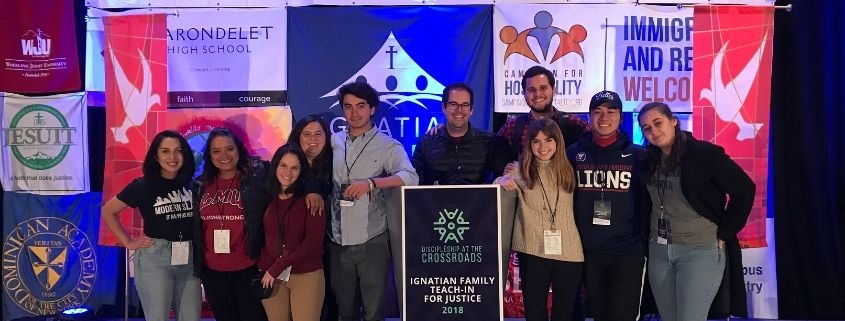

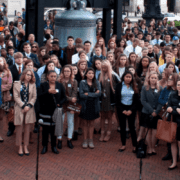
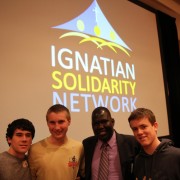


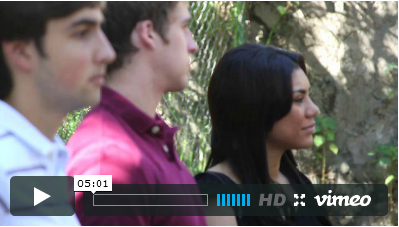

Leave a Reply
Want to join the discussion?Feel free to contribute!